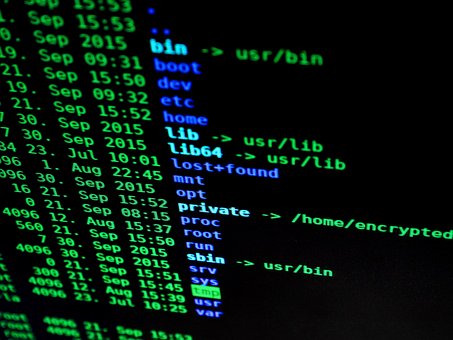Security
5 Ways to Protect Yourself from IP Address Hacking

In today’s interconnected world, where our online presence plays a significant role, safeguarding our personal information has become more crucial than ever before. One vital aspect of digital security revolves around protecting our IP addresses.
Your IP address acts as a unique identifier for your online activities, and without adequate safeguards, it can expose you to various cyber threats.Luckily there are various ways on how to strengthen the security of your IP address and ensure a safer online experience. You can change your IP address to a different region or use a strong password. We’ve detailed all the ways to protect your IP address. So without any further ado, let’s jump in!
5 Effective Measures to Protect Yourself from Hacking
Keep Your Devices and Applications Updated
Keeping your devices and applications up to date is crucial for both accessing new features and maintaining strong security. Regular software updates play a critical role in safeguarding your IP address from potential hacking attempts. These updates often contain essential security patches that address vulnerabilities that hackers could exploit to gain unauthorized access to your IP address.
By staying current with your operating system, web browsers, and applications, you ensure that known security weaknesses are patched, significantly reducing the risk of IP address hacking. So, make it a habit to regularly check for and install updates to fortify the security of your devices and protect your IP address from potential threats.
Use A VPN
Using a trustworthy VPN is an effective method to safeguard your IP address. By establishing a secure and encrypted connection between your device and the internet, VPNs make it challenging for hackers to track your IP address or monitor your online activities. They accomplish this by redirecting your internet traffic through a remote server, adding an extra layer of anonymity and protection.
With the help of a VPN, you enhance the security of your IP address, significantly reducing the risk of potential breaches. Make it a priority to rely on a reliable VPN like ExpressVPN service to fortify the protection of your IP address and ensure a safer online experience.
Enable a Firewall
Enabling a firewall is an essential measure in safeguarding your IP address against external threats. Firewalls serve as a protective shield between your device and the internet, actively monitoring and managing incoming and outgoing network traffic. By implementing a firewall, you create an additional layer of defense that hinders unauthorized access to your IP address and helps prevent potential hacking attempts.
This proactive approach ensures that your IP address remains protected, making it more challenging for malicious actors to breach your security. With a firewall in place, you can enhance your overall online security and reduce the risk of IP address-related vulnerabilities.
Regularly Monitor Your Online Accounts
Staying vigilant is crucial to safeguarding your IP address. Regularly monitoring your online accounts is essential to detect any suspicious activities or unauthorized access. Be watchful for unusual login attempts, unfamiliar devices connected to your accounts, or unexpected changes to your account settings. By promptly identifying and addressing potential breaches, you can significantly reduce the risks associated with IP address hacking.
Taking a proactive and attentive approach ensures that any unauthorized access to your IP address is swiftly handled, enabling you to maintain a higher level of online security. Stay proactive, stay alert, and protect your IP address from potential threats.
Exercise Caution When Using Public Wi-Fi Networks
Public Wi-Fi networks, despite their convenience, pose substantial risks to the security of your IP address. Cybercriminals frequently target unsecured Wi-Fi networks to intercept valuable information, including IP addresses. To safeguard yourself, exercise caution when accessing or sharing sensitive data while connected to public Wi-Fi. If you find yourself needing to use a public network, consider employing a VPN to encrypt your connection.
By doing so, you make it considerably more challenging for hackers to intercept your IP address and compromise your online security. Prioritizing these precautions will help ensure a safer browsing experience when connected to public Wi-Fi networks.
Use Unique and Strong Passwords
Using unique and strong passwords is an additional crucial step in protecting your IP address. Avoid using common or easy passwords, such as “123456” or “password.” Instead, create difficult passwords with a combination of numbers, symbols, uppercase and lowercase letters, and special characters. Furthermore, ensure that each online account has a unique password.
This way, even if one of your accounts is compromised, your other accounts remain secure. By employing strong and unique passwords, you add another layer of defense against IP address hacking and enhance the overall security of your online presence.
Ending Remarks
In our increasingly interconnected digital world, safeguarding our IP addresses is paramount to protect our online security and personal information. By implementing the five practical measures discussed in this article, you can significantly reduce the risk of IP address hacking. By staying proactive and vigilant, you empower yourself with the necessary tools and knowledge to defend against potential cyber threats.
Remember, taking steps to protect your IP address not only safeguards your online presence but also contributes to a safer and more secure digital landscape for everyone. Stay informed, take action, and enjoy a worry-free online experience.
-
Blog1 year ago
MyCSULB: Login to CSULB Student and Employee Portal – MyCSULB 2023
-
Android App3 years ago
Cqatest App What is It
-
Android1 year ago
What Is content://com.android.browser.home/ All About in 2023? Set Up content com android browser home
-
Software2 years ago
A Guide For Better Cybersecurity & Data Protection For Your Devices
-
Latest News2 years ago
Soap2day Similar Sites And Alternatives To Watch Free Movies
-
Android2 years ago
What is OMACP And How To Remove It? Easy Guide OMACP 2022
-
Android3 years ago
What is org.codeaurora.snapcam?
-
Business2 years ago
Know Your Business (KYB) Process – Critical Component For Partnerships





















